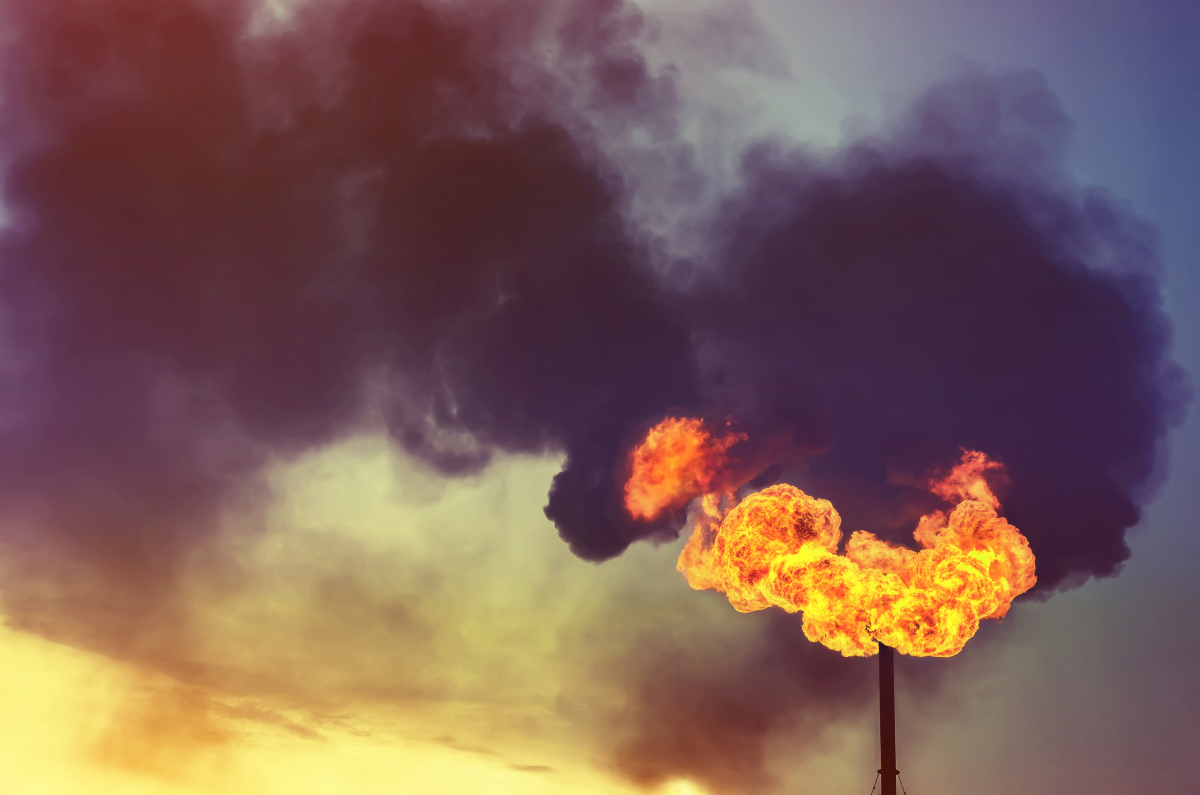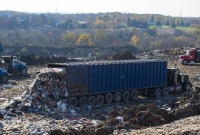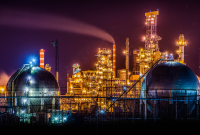Support strong Canadian climate journalism for 2025
Russia’s war on Ukraine has brought discussions of energy security to the forefront. Some argue Canada has an opportunity, even an obligation, to come to the rescue as a “responsible energy producer” to help stabilize global energy markets and reduce Europe’s reliance on Russian gas.
As steep price spikes at the pumps demonstrate, the economic turmoil wrought by the whims of ambitious dictators demonstrates the precarious nature of a global economy based on fossil fuels, even for countries like Canada that enjoy significant oil and gas reserves. While increasing global gas supply may be a short-term geopolitical necessity (albeit on a time frame that Canada is not equipped to deliver on), the European conflict also highlights the urgency of accelerating the transition away from old, climate-harming energy sources.
The climate crisis is already uniquely affecting Canada, from melting Arctic summer sea ice, to fuelling devastating forest fires. Nowhere was this more terrifyingly real than in Lytton, B.C., a town destroyed by wildfires last June.
Methane, the primary component of natural gas, is a potent greenhouse gas. Over a 20-year time frame, it is over 80 times more powerful than carbon dioxide at trapping heat in the Earth’s atmosphere and is responsible for over a quarter of the impacts of climate change we are experiencing today. The federal government estimates Canadian oil and gas companies emit nearly 1.5 million tonnes of methane each year.
The good news is that reducing methane from the oil and gas industry is the single fastest, available and affordable opportunity to slow down the rate of climate warming. The bad news is that Canada isn’t taking full advantage of this opportunity.
Canada has set ambitious methane goals. In 2016, Canada committed (along with Mexico and the United States) to reduce oil and gas methane emissions 40 to 45 per cent by 2025. And the Trudeau government recently committed to reducing oil and gas methane emissions in Canada at least 75 per cent by 2030. Late last year, Canada and over 110 other countries signed the Global Methane Pledge to further reduce methane from all sources (including oil and gas, agriculture and waste).
These commitments are strong and necessary. But Canada and its oil- and gas-producing provinces have made insufficient progress in adopting policies that will put the nation on track to meet these ambitious methane goals.
A recent technical analysis of federal and provincial regulations indicates we are not on track to even reach the 40 to 45 per cent reduction goal, let alone the more ambitious 2030 target. Moreover, recent studies have shown that Canada’s oil and gas industry is generating twice as much climate pollution as what government estimates suggest.
Federal and provincial regulations do not match global best practices, including those close to home in states like Colorado, New Mexico and California — states that are implementing more stringent yet cost-effective policies to reduce methane leaks, vents and flares in the oil and gas supply chain.
Canada can — and must — do more.
While it is unclear whether Canada can do much to stabilize global energy markets in the short term, it can help stabilize the global economy and climate in the longer term. Canada should invest in solar and wind energy and electrify buildings and transportation systems along with the workforce needed to accelerate the transition. And even more urgently, Canada needs to craft and implement cost-effective policies to reduce methane leaks, vents and flares in the oil and gas supply chain.
Canada has a vital role to play in the world’s energy future. It is time for federal and provincial governments and the nation’s energy companies to meet this moment with real reform that will benefit Canadians economically and environmentally. Together, these actions can help solve the climate crisis.
Or Canada can succumb to the naysayers in industry who clamour for the status quo.
Letting this opportunity slip by would be a transgression that future generations of Canadians simply will not forgive.
Dan Grossman is associate vice-president of energy transition for the Environmental Defense Fund.
Scott Seymour is a senior research analyst with the Environmental Defense Fund.







Comments
Who or what is a “responsible energy producer”?
Who is responsible for turning parts of NE Alberta into an ecological sacrifice zone?
Who is responsible for imperilling health of indigenous communities on the frontlines of "development"?
Who is responsible for destabilizing global climate, massive air pollution, and ecosystem collapse?
Who is responsible for grossly under-reporting its emissions?
Who is responsible for obstructing climate action and environmental regulation?
Who is responsible for building up an unfunded liability for cleanup and reclamation north of $260 B?
If Canada's O&G industry is "responsible", what does an irresponsible industry look like?